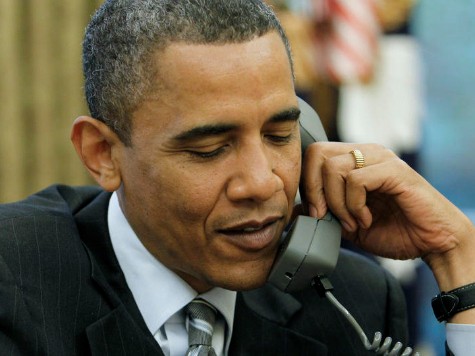The Federal Communications Commission (FCC) has finally started to crack down on waste and fraud in its phone subsidy program for the poor by compiling a database of subscribers.
The $1.85 billion program, called Lifeline, and popularly referred to as the “Obama Phone” program after a viral video of a woman saying she would vote for President Obama because he gave her a free phone, was started in 1984 so that the poor could communicate with families, emergency services, and jobs. The program, which pays for their phone service but not the phones, has been funded by charges on the monthly bills of every landline and wireless-phone customer.
Some of the companies receiving funding through Lifeline offer free phones to subscribers. As of early 2013, Lifeline paid carriers $9.25 per subscriber per month for free or discounted wireless service.
Mark Wigfield, an FCC spokesman, told The Hill that subscribers in five states — Arkansas, Louisiana, Maryland, Oklahoma, and Washington — have already been listed, and that by March, the nation will be completely recorded in the new database. One of its benefits will be to eliminate multiple companies receiving subsidies to pursue the same subscribers.
There is bipartisan support for cutting out the cellphone part of Lifeline, as Sen. David Vitter (R-LA) and Rep. Tim Griffin (R-AK) have introduced legislation to do so, while Sen. Claire McCaskill (D-MO) also is on record criticizing Lifeline.
The FCC has already handed out $90 million in fines to companies accused of collecting fraudulent subsidies.
In 2012, the FCC started requiring carriers to verify subscribers’ eligibility. Of the top five companies using Lifeline, AT&T, Telrite Corp., Tag Mobile USA, Verizon Communications Inc., and the Virgin Mobile USA unit of Sprint Nextel Corp., 41% of their six million subscribers couldn’t prove that they were eligible or didn’t respond at all when asked.
FCC Chairman Julius Genachowski has said, “The program rules we inherited were designed for the age of the rotary phone and failed to protect the program from abuse.”

COMMENTS
Please let us know if you're having issues with commenting.